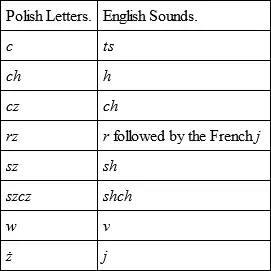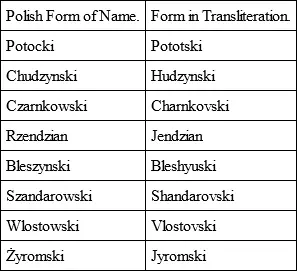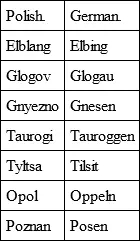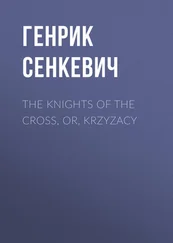Генрик Сенкевич - The Deluge. Vol. 1
Здесь есть возможность читать онлайн «Генрик Сенкевич - The Deluge. Vol. 1» — ознакомительный отрывок электронной книги совершенно бесплатно, а после прочтения отрывка купить полную версию. В некоторых случаях можно слушать аудио, скачать через торрент в формате fb2 и присутствует краткое содержание. Жанр: foreign_antique, foreign_prose, на английском языке. Описание произведения, (предисловие) а так же отзывы посетителей доступны на портале библиотеки ЛибКат.
- Название:The Deluge. Vol. 1
- Автор:
- Жанр:
- Год:неизвестен
- ISBN:нет данных
- Рейтинг книги:4 / 5. Голосов: 1
-
Избранное:Добавить в избранное
- Отзывы:
-
Ваша оценка:
- 80
- 1
- 2
- 3
- 4
- 5
The Deluge. Vol. 1: краткое содержание, описание и аннотация
Предлагаем к чтению аннотацию, описание, краткое содержание или предисловие (зависит от того, что написал сам автор книги «The Deluge. Vol. 1»). Если вы не нашли необходимую информацию о книге — напишите в комментариях, мы постараемся отыскать её.
The Deluge. Vol. 1 — читать онлайн ознакомительный отрывок
Ниже представлен текст книги, разбитый по страницам. Система сохранения места последней прочитанной страницы, позволяет с удобством читать онлайн бесплатно книгу «The Deluge. Vol. 1», без необходимости каждый раз заново искать на чём Вы остановились. Поставьте закладку, и сможете в любой момент перейти на страницу, на которой закончили чтение.
Интервал:
Закладка:
Discouraged and wearied by many wars and reverses, and more than all by the endless dissensions of magnates, Yan Kazimir resigned the kingly office in 1668, and retired to France. Being now a widower, he became Abbot of St. Germain and St. Martin, and lived on his stipend from these foundations, for the Poles refused to continue his pension. It seems, however, that he did not remain in seclusion till the end, for he is mentioned as marrying in secret a widow who had once been a laundress. He died in 1672, remembering the world much more than the world remembered him.
Yan Zamoyski, one of the most celebrated nobles in Polish history, was the grandfather of Sobiepan Zamoyski. The time of Zamoyski's success was during the reign of Stephen Batory, who gave him more offices and power than any citizen of the Commonwealth had ever enjoyed. As castellan of Cracow, he was the first among lay senators; as starosta of the same territory, he had extensive jurisdiction over criminals in Little Poland; as hetman, he was commander of all the military forces of the kingdom; as chancellor, he held the seals, without which no official act of the king had validity.
Perhaps the most notable action in Zamoyski's career as a civilian during Batory's reign was his treatment of the Zborovskis, one of whom he had beheaded, and another condemned to decapitation and infamy. The hatred of the Zborovskis for Zamoyski became so intense that later on they tried to seat their candidate, Maximilian of Austria, in opposition to Sigismund III., Zamoyski's choice and that of the majority. The Zborovski party brought their candidate to the gate of Cracow, intending to enthrone him with armed hand. Zamoyski repulsed and pursued them to Silesia, where he defeated and made Maximilian prisoner. The Austrian Archduke was held in captivity till he renounced all claim to the throne. This is the captivity to which Sobiepan refers on page 324, Vol. II.
Zamoyski had Sigismund impeached in 1592, not to condemn him, but to give him a lesson. Zamoyski's course in this affair, and his last speech in the Diet of 1605 are his most prominent acts during a reign in which he was first in opposition, as he had been first on the king's side during Batory's time. Zamoyski died in 1605, alarmed, as Lelevel says, for the future of his country.
Sobiepan Zamoyski, who conceived such a friendship for Zagloba, married the daughter of Henri de la Grange, a captain in the guard of Philip, Duke of Orleans. After Zamoyski's death, his widow, a woman of great beauty and ambition, married Sobyeski, subsequently elected king to succeed Michael Vishnyevetski, who is mentioned on page 253, Vol. II.
Kmita, the hero of THE DELUGE, was probably of the Kmitas of Little Poland, and of those who inherited lands granted Poles in Lithuania and Russia after the union.
Kmitsits, which means "son of Kmita," as "starostsits" means "son of a starosta," is the name used by Sienkiewicz; but as that word would baffle most English readers, I have taken Kmita, the original form of the family name. Kmita is mentioned in Solovyóff's Russian history as co-operating with Sapyeha and Charnyetski against Hovanski and Dolgoruki; in that connection he is called Kmitich.
NOTES
Since the Polish alphabet has many peculiar phonetic combinations which are difficult to one who does not know the language, it was decided to transliterate the names of persons and places in which such combinations occur in this book. The following are the letters and combinations which are met with most frequently; -

In this transliteration ch retains its ordinary English sound. J is the French j ; the vowels e , i , u , are, respectively, ai in "bait," ee in "beet," oo in "pool," when long; when short, "bet," "bit," "put" would represent their values. I , when unaccented and followed by a vowel, is sounded as y .
The following names will illustrate the method of this transliteration: -

In Jendzian and Jechytsa, – only names, as I believe, beginning in Polish with rz in this work, – the initial r has been omitted in the transliteration on account of the extreme difficulty, for any one not a Pole, of pronouncing r followed by the French j .
ACCENT
All Polish words, with few exceptions, are accented on the syllable next the last, the penult. The exceptions are foreign names, some compounds, some words with enclitics. Polish names of men and places are generally accented on the penult.
MAP OF THE POLISH COMMONWEALTH
This map, though diminutive, contains data through which the reader may see, at least in part, the historical course of the Commonwealth.
The territory is indicated which was lost to the Teutonic Knights, and which became later the kingdom of Prussia. On the east are indicated the Russian lands which became connected with Poland, and which rose against Polish rule in 1618. These lands are included between the lines running north and south on the map, and which are designated, respectively, "Western limit of Russia before the Tartar invasion," "Eastern limit of the Polish Commonwealth at the accession of Yan Kazimir."
The names of more important places mentioned in Fire and Sword and The Deluge appear also on the map. A few of these names are not so familiar in their Polish forms, which I have preserved; therefore the German is given, as follows: -

TITLES OF RANK AND ADDRESS
The highest military rank in Poland was grand hetman; next in order came field-hetman, which has appeared inadvertently in these volumes as full hetman. "Your worthiness," so frequently used, would be better translated "your dignity," "dignity" being used in the sense of "office." The terms Pan, Pani, and Panna are applied, respectively, to a gentleman, a married lady, and an unmarried lady; they are now equivalent to Mr., Mrs. or Madame, and Miss.
CHAPTER I
There was in Jmud a powerful family, the Billeviches, descended from Mendog, connected with many, and respected, beyond all, in the district of Rossyeni. The Billeviches had never risen to great offices, the highest they had filled were provincial; but in war they had rendered the country unsurpassed services, for which they were richly rewarded at various times. Their native nest, existing to this day, was called Billeviche; but they possessed many other estates, both in the neighborhood of Rossyeni and farther on toward Krakin, near Lauda, Shoi, Nyevyaja, and beyond Ponyevyej. In later times they branched out into a number of houses, the members of which lost sight of one another. They all assembled only when there was a census at Rossyeni of the general militia of Jmud on the plain of the invited Estates. They met also in part under the banners of the Lithuanian cavalry and at provincial diets; and because they were wealthy and influential, even the Radzivills, all powerful in Lithuania and Jmud, had to reckon with them.
In the reign of Yan Kazimir, the patriarch of all the Billeviches, was Heraclius, colonel of light-horse and under-chamberlain of Upita. He did not dwell in the ancestral nest, which was rented at that time by Tomash, the sword-bearer of Rossyeni; Heraclius Billevich owned also Vodokty, Lyubich, and Mitruny, situated near Lauda, surrounded, as if with a sea, by agriculturists of the petty nobility.
Читать дальшеИнтервал:
Закладка:
Похожие книги на «The Deluge. Vol. 1»
Представляем Вашему вниманию похожие книги на «The Deluge. Vol. 1» списком для выбора. Мы отобрали схожую по названию и смыслу литературу в надежде предоставить читателям больше вариантов отыскать новые, интересные, ещё непрочитанные произведения.
Обсуждение, отзывы о книге «The Deluge. Vol. 1» и просто собственные мнения читателей. Оставьте ваши комментарии, напишите, что Вы думаете о произведении, его смысле или главных героях. Укажите что конкретно понравилось, а что нет, и почему Вы так считаете.











